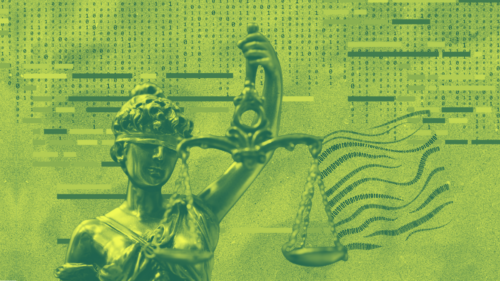Walter Dickey has been a member of the faculty of the University of Wisconsin Law School for almost 30 years. He has written extensively about community justice issues, and how police and prosecutors work can together with community members effectively for public safety. In early 2005, he spoke with the Center for Court Innovation’s Carolyn Turgeon about his views on community prosecution.
Do you feel community prosecution is an effective strategy for enhancing public safety?
I think it depends an awful lot on the circumstances and how the prosecutor’s office looks at problems and what they consider their role to be. I think some community prosecution programs are effective. Some of them are not effective. It depends to a great extent on whether or not prosecutors work closely with the police and with community groups. There certainly are some that seem to be fairly impressive in their results.
I don’t think it’s easy. I think, though, that prosecutors have an enormous amount of both moral and legal authority. And they’re situated to really provide leadership, though some don’t do it to nearly the degree that I think they should. I think this is an untapped or undeveloped area. But you do certainly see a lot of instances where prosecutors’ offices are really being quite effective in solving community problems and working with other governmental agencies and citizens to solve problems that are important to the community.
Are there any community prosecution strategies that you feel are especially effective?
I think first of all, community prosecution seems to work most effectively when it’s in synch with community-oriented policing and problem-oriented policing. To do it unilaterally as prosecutor without the police already engaged is almost impossible. Secondly, [effective community prosecutors] really try to find out what issues are of concern to the community and then use their authority to address those concerns. And rather than sit in your office and wait until the police bring criminals in to prosecute, they’re obviously much more proactive in trying to identify community problems and what the solutions might be. And then they’re much more robust in their consideration of what tools to use other than simply prosecuting cases—to address drug problems, gun problems, abandoned car problems, whatever the problem is in an individual community.
Can you give an example of a successful initiative?
Here is an example. In Kalamazoo, Michigan, the prosecutor’s office surveyed community members about problems and learned that dilapidated housing was a matter of great concern to them. Housing that was very expensive to rent, not up to code, and often unsuitable for human habitation. The housing folks had been trying to deal with this problem but had basically gotten nowhere. What the prosecutors did was trace an enormous amount of the rundown housing being rented at excessive rates to three slum landlords, and then commence action against the three slum landlords in ways that would result in far greater possible penalty than if they had simply prosecuted a particular case of a code violation.
Prosecutors were working closely with police, who had already established community offices in neighborhoods that were most affected by these problems. In working in concert with the police I think they were much better able to get information about the problems than they otherwise would have. Then they were able to work with community groups, too, because the police had established themselves very well.
When the prosecutors come in, what value do they add?
First of all, they’ve got the legal authority to prosecute cases. They’ve got legal authority also, depending on the legal setting, to either bring nuisance and civil kinds of actions or to get the city attorney—their civil counterpart—to do so. And with respect to condemnation and nuisance violations, in one example, in Minneapolis, they used their civil authority to close down what were said to be saunas but were really houses of prostitution that were of enormous concern to the community and had really frustrated the police and the community. There I think it was almost wholly a matter of prosecutors using civil authority. They were able to do something that neither the police nor the community were able to do and it was through bringing legal action of a kind not ordinarily done by prosecutors’ offices. The same was true in Kalamazoo in respect to the housing.
What are some of the challenges to starting a community prosecution program?
One is that the cultures of the offices in which community prosecution programs exist are not necessarily supportive of them. There is a general attitude that real prosecutors prosecute cases, not solve problems. And so when you’re bucking the tide by engaging in problem solving it can put you at odds with other people who work in the office. I think, too, that getting the cooperation of others in the community can be a frustration and can stymie efforts. One of the things that was very striking to me in all but one situation was the absence of corrections officials as partners in the efforts of prosecutors. And very often corrections agencies would have really brought a lot to the table, had they been involved. For example, in Austin, Texas, I remember both the police and the prosecutor were trying to deal effectively with street drug sales in the downtown district, and as it turned out a significant number of the people who were engaging in a drug dealing activity were people who were under supervision by the Department of Corrections, or should have been. And the fact that corrections was not a partner in the effort, at least in the early stages, really frustrated and limited prosecutors’ ability because corrections had an awful lot of legal authority over the people under its supervision that wasn’t being exercised in concert with what the police, the community, and the prosecutors were trying to do.
Do you think community prosecution can be institutionalized more broadly within prosecutors’ offices?
In many places where you see community prosecution going on, it’s a very small percentage of the prosecutor’s office that’s engaged in it. And therefore you worry that it’s just token, or just political. The question really is what would happen if it were tried on a larger scale—and I think it has been tried on a larger scale in a couple of places, Indianapolis and Portland for example, with apparently quite strong results. But I think by and large what you see is individual prosecutors who get this assignment and figure out a way to do it effectively, but whether or not it’s got broader implications for how business is done, even within those jurisdictions, really remains to be seen.
Do you have any advice for people interested in starting community prosecution programs?
I think a couple of things have to happen. First, you have to get out of the mindset that what you do all day is simply process cases. Second, you have to listen and ask the community what are the matters of concern to it that a prosecutor’s authority might be of use in solving. And I think in a sense you’ve got to seek the community, because a community can identify its problems but it doesn’t necessarily associate either the police or the prosecution with solving those problems, because all they’ve observed is the police and the prosecutors doing business as usual. So I think it’s important to have some engaged kind of inquiry in which the community is informed about the possible things the prosecutor might help them with as a way of drawing them out. Then I think the prosecutor’s office has got to be sort of organized in a way to allow the prosecutors to do that. That means getting out of downtown central office and actually out into the communities in order to get a better feel for what’s going on. And that’s a start.

